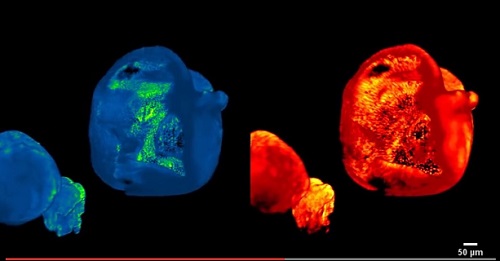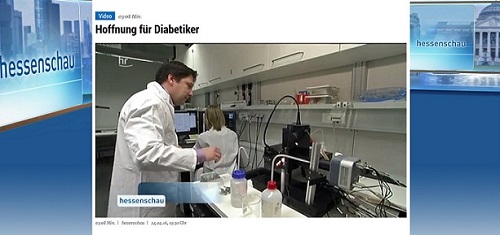News Archive
New EU project addresses diabetes with pancreas organoids
February 2016. The goal of the new EU project LSFM4Life is the production of long-term renewing pancreas organoids for the cellular therapy of type 1 diabetes. The cause of this type of diabetes is a lack of insulin-producing beta-cells in the pancreatic islets. The rate of people affected by type 1 diabetes is rising every year and is increasing particularly amongst young children.
Pancreas organoids derived from adult pancreas stem cells are one of the most promising technologies for cellular and regenerative therapy. “LSFM4Life provides the unique chance to achieve something of significance for the patients, especially for children and their families.” says Francesco Pampaloni, co-applicant and scientific manager of LSFM4Life. “We formed a well-balanced blend of academia and industry partners, gathering a tremendous expertise. While insulin is the life-saving treatment of type 1 diabetes, LSFM4Life seeks a cure.”
The LSFM4Life project was granted within the Horizon2020 Program of the European Union after an competitive two-stage selection process. The project commenced with a kickoff meeting in Brussels on 9 February 2016 and will be funded for four years. The consortium, which is coordinated by the group of Ernst Stelzer at Goethe University Frankfurt’s Buchmann Institute for Molecular Life Sciences (BMLS), includes two further top academic research groups from Cambridge (UK) and Milan (Italy) as well as four small and medium-sized enterprises (SME) from Germany, France, The Netherlands and Switzerland. Further information ...

Video of pancreas mouse organoids taken with an LSFM microscope. Left: Actin cytoskeleton (Phalloidin-Alexa488). Right: nucleus (Draq5). Objetives: Carl Zeiss Epiplan Neofluar 2.5x, NA 0.05, Carl Zeiss W N-Achroplan 10x, NA 0.3. Francesco Pampaloni, Goethe University Frankfurt, BMLS.
Contacts:
Ernst Stelzer and Francesco Pampaloni
Buchmann Institute of Molecular Life Sciences
Department of Biosciences
Goethe University Frankfurt
ernst.stelzer@physikalischebiologie.de
francesco.pampaloni@physikalischebiologie.de


